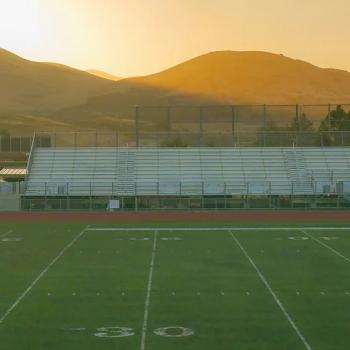The Misery Conspiracy
It seems like a conspiracy. The new job or the new career never turn out exactly like we expect. Sometimes the move is really a move up. Sometimes, at least on the job satisfaction scale, it’s a move down. Usually, we find ourselves trading one set of negatives for a new set of negatives and end up breaking even. Why? Is the job creation world colluding in a conspiracy of misery?
There are two answers that are commonly given.
- First answer is essentially “yes.” Work will always have an element of misery. “That’s why it’s called work.” “Get over it” and “Stop whining” quickly follow as common threads of advice.
- Second answer is no. Misery is not work experience destiny. But no comes with a multitude of caveats that boil down to one basic idea. You won’t be miserable on the job if you properly manage your career. (And let me sell you my five point plan to make your next career move the right one!) Net-net bottom line, if I’m miserable on the job it is my fault—I picked the wrong job. I chose the wrong career. I tolerate too much dysfunction. I haven’t position myself for a move to a better company, etc.
Either we are doomed to misery or our path to job satisfaction all depends on us. If you get it right you don’t mind answer number 2. But if you’ve made a mistake, even if its just the mistake of misreading the market or unwittingly signing on with a tyrannical employer, number 2 is just as depressing as number 1.
In this post, I suggest an alternative to the poles. It is summarized under the heading A Theology of Workplace Frustration. One of the unique selling points of biblically rooted Christian faith is its power to explain the world as we find it. I’m not sure any other faith, including a secular naturalism, can provide an adequate explanation for our frustration with work. Here’s a summary of the Christian perspective.
A Theology of Workplace Frustration
- The Fall. The most profound event in the shaping of our world is something that Christian thinkers call the Fall. The whole created order of our world has fallen from its original, untainted state. This spoiling was born out of the human drive for independence from God, the attraction of being like God for ourselves. According to the author of Genesis, the fall taints everything: 1) our relationship with God, 2) our relationship with each other 3) our relationship with ourselves, and 4) our relationship with work. (See Genesis 3, and the famous “by the sweat of your brow, you will bring forth fruit from the ground.”). From a biblical view, work is frustrating because something that was perfectly good has been damaged. We feel the frustration because we were made for better. And this point of frustration is not where the story ends.
- The Mission of Redemption. To redeem something is to release its value, to bring it back to its intended freedom and/or worth. God doesn’t give up on our world as a result of the Fall. Instead, he comes for us in Jesus. And Jesus mission is to reconcile all things to God (Colossians 1:20)—work is included in this redemption agenda.
- The End Game: Redemption is in process at this present time. We have examples of goodness and grace, of meaning and purpose. And we have examples of mess. But the promise of Jesus is that the in-between will end. And he invites us to look ahead to the experience of a perfected universe that includes meaningful work.
So we live somewhere in between 2 and 3, with both elements of fulfillment and elements of frustration in work. Yet we don’t face this conundrum alone because we have a God who lived in our world, knows both its glory and pain, and who can be encountered on a daily basis to shift the balance of power in our daily struggles.
Conclusion: Life at work is life between the dead-ends of despair and self-redemption. Here we embrace God’s power to endure and find value in broken work and we find God’s strength to make or find better work.
How About You?
What is the power in seeing your workplace reality as a caught in this tension between the Fall and Redemption?
Other Posts in the Surviving a Miserable Job Series
1. Survival Strategies for a Miserable Job: Thanksgiving Leftovers
2. What is the ticket to your best next? How to survive a miserable job.
3. The Question We Don’t Want To Ask: Survival Strategies for a Miserable Job













